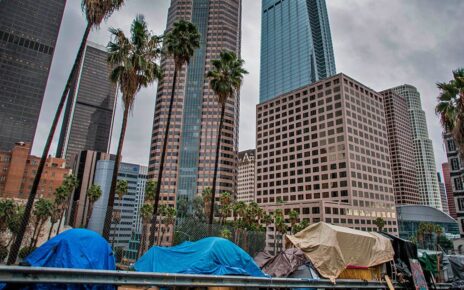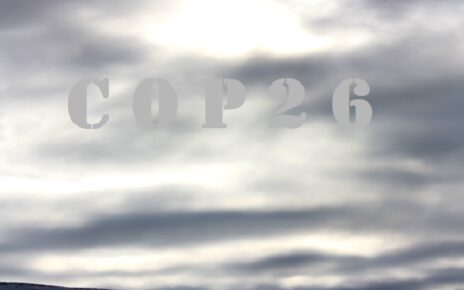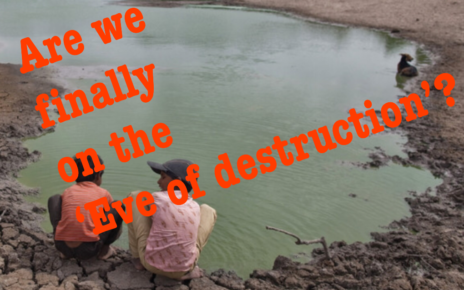The extent of the problem
There are some serious farmers protests taking place in the Netherlands at the moment, a big one happened last Saturday 23rd July 2022, and road blocks and obstacles are still taking place several days later. This is not just confined to The Netherlands either, in India, Sri Lanka, Germany, Italy, Spain and Poland, farmers are having the same problem.
The International media have portrayed the dispute between Dutch farmers and their government in terms of sustainable farming and environmental conservatism, versus the farmers. Now we are supposed to believe that the Government are wearing the Green hats and the Farmers wear the Black hats.
The media are trying to draw a line between “The Farmers” and “The Nature”, and as usual, this has more to do with Economics and the politics of Divide and Rule, than anything else. Farmers are an intergral part of the nature, land farming and animal husbandery have been going on for centuries, and to try and separate farmers from the nature in which they exist is sheer foolishness.
The weather, rainfall, rivers and other supporting systems like oxygen and nitrogen cycles, together with nutrients borne on those elements drive and support both nature and agricultural use. The same ecosystems support both, and it is a very unwise, or inexperienced farmer that would ignore these facts.
All of the farmers I ever met in the Netherlands were educated at either university level or at a specialist agricultural college. Not only are they accustomed to working eight days a week, but they also manage to be efficient and innovative as well as familiar with all aspects of farm management and land use.
They also work in one of the most regulated industries in the global north. Quotas, tariffs, rules, subsidies, and regulations, from the EU as well as national government bind the farmers hand and foot. In over 25 years I have never seen any major instances of farmers wilfully breaking those regulations and directives. By and large, the Netherlands people accept regulations and comply willingly with Government interventions. The fly in the ointment now seems to be a question of who owns or controls the governments that makes those rules and regulations?
By the way, those quotas, tariffs, rules, subsidies, and regulations I mentioned above do not seem to fit very well with the economists notion that we live in a “free market economy”. How free is your economy when it is bound up it in silos full of paperwork?
I was taken by surprise with all of these protests in the Netherlands, I suppose I had always thought it was the French farmers who were the first to come out in protest. I was also deeply shocked to learn that at the beginning of last week things had reached such a state where the police had fired live rounds in their attempts to control protesting farmers. I confess to being pretty angry about that too.
What made it more questionable was the constant stream of rhetoric about “The Stikstof (Nitrogen) Crisis” and how the farmers were revolting against what we should all be thinking of as a very “reasonable appeal by government to comply with new nature directives”.
The argument
The main argument now pitches Man versus Nature, and while overlooking the fact that man was a part of nature since he first walked on 2 legs there are a number of other issues wrapped up in this dispute.
Some folks regard this as a land grab, to capitalise on property made available as a result of farmers refusing to sell their farms and give up their livelihoods. This is one of the inflammatory arguments that takes a particular type of politician to ignore, the type that has made a career out of politics and learned little in the process.
Others view it as a manifestation of the much touted “Great Reset” of the World Economic Forum, under Klaus Schwab.
There are also some colourful maps doing the rounds of the Netherlands depicting it as a European Hub of some sorts with an initiative under the name of TriState City. The website is pretty light on the Who What and Why this initiative came about. Is it a group of business men? Is it the EU commission? Is it the WEF?
They take the trouble on the site to tell us that this has nothing to do with the farmers and their nitrogen protests but they do not tell us what it DOES have to do with. It seems to me to be a Turbo charged plan for Business……as usual. No mention of any democratic process in here though.
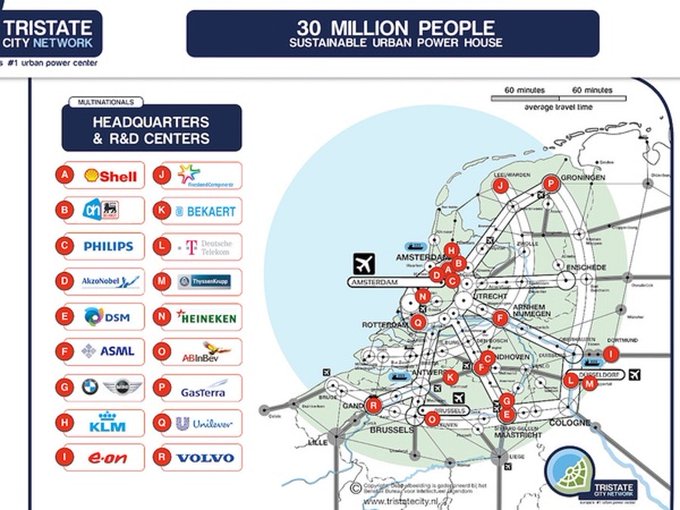
I have no recollection of any such proposals or discussions on this type of development taking place during the last round of elections in the Netherlands, so clearly the opinions of the citizens of this new power house are not required and there is no need for the application of any form of democracy or accountability
Australian Sky News had this report about the protest situation a few days ago, but remember, its a Rupert Murdoch channel so what lays behind the messages they are putting out is anybodys guess.
To illustrate my point, in some places the mere mention of “The Great Reset” is enough to bring howls of “Conspiracy Theorist” across the media. There has been more than enough information put out about Agenda 201, Build Back Better, The 4th Industrial Revolution etc etc to fill a country library. The WEF website has been live since July 2020, all you have to do is join up and you have access to the whole thing. Be prepared to lose a day or two exploring it, and also change your mind about whether its a theory or reality
Some of us sceptical folk view the protests as more to do with a reverse engineering of the Big-Agriculture methods of farming that most of the US and Europe has found itself dealing with for decades now. This is the control of agriculture under the false premise that ordinary well managed sustainable agriculture is not capable of feeding the world. As a result, todays farmers learned at school that mechanisation, intensive animal husbandry, now mainly factory farming, and liberal applications of a wide range of pesticides, herbicides and fertilisers must be used in order to create enough food for everyone.
This is simply not true. Millions of small specialised farmers are actually proving to be far more productive than was ever thought possible, and in sustainability terms beat the big conglomerates out of sight. The only reason Big-Agriculture has been able to make these claims is the plain unvarnished fact that they have unlimited access to the media, and while they may well generate vast sums of money with their activities, little of that money finds its way into the farmers and consumers pockets.
To add insult to injury, industrialists rarely, if ever, clean up the mess they have created. To them it seems quite normal that any damage done to the environment, or the atmosphere, or anything else for that matter, is paid for by the government, which means the taxpayer. We have entered the parallel universe, where the victims, or the public pays, not the creator of the damage. Strangely akin to the refusal of pharmaceutical companies to accept any liabilities for the products they make.
Farming or Manure-facturing?
One of my personal farming dislikes in the Netherlands is the disturbing trend to keep large herds of dairy cows indoors, sometimes for the whole year round. This concentrates all of their waste products in tanks below the stalls which are then injected, in highly concentrated form, into the grass over one or two days in the year. (instead of being dropped by cows naturally and spread randomly all over the surface of a field over a long period of time).
I am sure there will be a scientific reason for this, but as a layman I find myself asking if this may not be one of the main reasons for the perceived “Pollution” A reasonably heavy shower of rain within a few days of this injection process will see a lot of the concentrated slurry washed off straight into the ditches and waterways.
Whatever the reasons, and whoever the particular factions are behind it, what is taking place now, in the name of saving Nature, is just that…backing down from the intensive chemical and biocidal cocktails and treating livestock like animals instead of numbers on a balance sheet.
At least I hope it is. Sadly I know only too well about the levels of duplicity that Big Agriculture industries are capable of, as does anyone who has followed the decades long story of Monsanto.
It is worth remembering that all of the corporations that manufacture the chemicals, and the machines that deliver them, plus the fuels used to run it all are all members of the WEF.
Not content with just making and selling the stuff, they lobbied their little legs off with every government in the global north to ensure their brand of agriculture became The Normal. They also lobbied and financed schools, colleges and universities to spread their gospel of farming on an industral scale, a programme which was global, expensive, and sustained over many decades.
In addition, they managed ‘to secure the support of ‘countless politicians and legislators, and gradually prised open the “market doors” to remove those bothersome rules and regulations that controlled agriculture in the past, allowing the spread of Round-up, GMO seed, and a vast array of products and systems to transform the way farmers operated.
Agencies in the US like the EPA also had well oiled revolving doors installed. This allowed Industry representatives to shift seamlesly from bringing a new product to market in one moment to nipping over the road to the EPA to help get that same product through the checks and tests required for certification.
The term for this is “Captured Agency”and America has been suffering from this disease since the 1930’s. No area is sacred, the FCC, EPA, FDA and CDC all suffer badly from this highly contagious, {But lucrative} illness, for which there is no vaccination or treatment on the horizon. If you think that by quoting the regulatory agencies of the USA I am somehow being irrelevant, think just how closely the same agencies in Europe follow their example.
So how does this affect the Farming Community?
Farmers fuel bills, feed bills, GMO seed, fertiliser and herbicide bills, plus the cost of that new Hi-Tech Smart-Stall for 500 cows, with an automated milking parlour and feeding facility all has to come out of the Farmers slice of the pie. The bills add up to € Millions.
Many farmers find themselves firmly strapped on to that magic roundabout, trying to balance the books, working 90 hours a week, 52 weeks a year, and looking at an ever-shrinking bottom line…their “Take Home Pay”.
It may be true that today’s Dutch farmers take home more money than they did a few years ago, but they also carry much more debt. In 2022, with rising inflation and energy prices I suspect that for many farmers things are getting pretty tough, they certainly are for the farmers of India, Sri Lanka, Germany, Italy, Spain and Poland
In India, the farmers also protested long and loud about this same magic roundabout, and one of the things that sparked off those nation-wide protests was the fact that so many Indian Farmers had committed suicide in the last 2 decades . simply because they could not pay their bills. Some estimates say as many as 250,000 farmers took their own lives in recent years, a human tragedy of monstrous proportions and all brought about by a panel experts idea of economics
This isnt just about money though, farmers are not only motivated by money. To most of them, farming is a vocation, a way of life, and the only real concerns I ever heard farmers speak of were on the subject of whether they could survive through another winter/drought/flood or not.
Its not just about the farmers either, in the Netherlands they enjoy a great deal of support from the public, and they have a whole range of issues with the current government that are only waiting for the right time to surface.

The banner translates to
” He who does not value his farmers has learned nothing from history”
So who is to blame for this situation?
When a Farmer clears the grass from a field with glyphosate to make it ready to plant potatoes, or when he scatters sacks full of ammonium nitrate fertiliser on the land to regreen it, he does it under the rules and regulations of the time.
When the grass shoots up out of the artificially fertilised land and it is mown short and sent by the wagonload to the Grass Drying facility to be dried for winter use, he does so under the rules at the time.
To enable this process to take place he needed large amounts of mechanical machinery to do so, all conducted under the rules and regulations of the time, and accepted as the “Normal “thing to do.
Now the Farmer is meant to take the blame for all these things he has been taught to do., and he must give up his livelihood immediately, there can be no delays.
It seems to me that the farmer must not only correct his own “Faults” but he must rectify the mistakes of the “Experts” that told him how to manage his farm in the first place.
If you wish to suddenly stop all that happening, and reverse the process then you have to do it over a period of time, and in this case the Government is trying to comply with agreements made for the year 2030.
So there is time, and in fact over the last few years there have already been considerable reductions made in nitrogen application.
This issue has also been raised recently with the Ministry of Finance pointing out that the reduction numbers that the Minister of Agriculture is demanding do not in fact reflect advances already made. This pantomime could run until Christmas.
This is Social Engineering at its worst. There is no ‘carrot and stick’ principle here, and very little democracy either, just ultimatums and a bulldozers. Not only are the farmers unhappy but a large part of the Dutch population are too. We have just undergone one big dose of it with 2 years of Covid, that seems to have created a massive labour shortage all of a sudden., despite a rising population.
The HORECA (Hotel, Restaurant and Catering) Industry is running at about 50% of its potential in mid summer, and today I read that we must also get ready to go on summer holiday with no money this year as Security companies are short staffed and they cannot fill the ATM’s.
I originally thought that this whole effort by the Dutch government was to steer farmers towards a more sustainable and organic way of farming. It seems not, for when farmers have offered to do this they have been told that is not possible and that they must relinquish their land.
There is no doubt in my mind that there is far too much chemical farming going on around the planet at the moment and there is no doubt who is causing it, its the famous private/public partnership of Government and Big-Agriculture.
What about the next door neighbours?
An article on the Dutch website Climategate.nl by guest writer Chris Schoneveld asks some very appropriate questions about how things are done on the other side of the border with Germany. To try and be as objective as possible Noord Rhine Westfalen was selected. It borders on the Netherlands (similar geology – topography) and has quite similar statistical parallels as you can see below.
The first real eye opener is the actual amount of nitrogen permitted in Germany compared to the Netherlands. Germany enjoys a threshold 143 times bigger than that of the Netherlands.
Either Germany has a different type of Nitrogen, or the Netherlands threshold has been pitched so low as to make most forms of Agriculture seemingly imnpossible.
But what is the alternative?
A British TV documentary around 10 years ago covered a Dairy farm in America with a novel solution to managing cattle. For several generations the family had been grazing cows on lush rolling green pastures of natural meadow grasses. They moved the cows every day on to a new strip of grass – simply by rolling a portable fence forward each day.
The cows grazed only the tender tops of the grasses, never cropping to the ground, and never stopping long enough to trample and compact the soil. This mimicked in miniature the vast wandering herds of Buffalo in the US and Wildebeest in Africa. Both of those species thrived for thousands of years, and so did the soil and grasses that supported them…until man came along.
Two days after the cows had left each grazing strip a portable chicken shack was rolled in and a couple of hundred hens went to work, scratting at the cow pats and spreading the dung finely all over the land, and taking out the flies and larvae in the process. This also mimics the wild birds of the earlier savannahs, but it adds a slightly different manure to the grasslands, and that also included the seeds of numerous varieties of grasses and flowers adding another dimension to diversity.
Large numbers of wholesome organic eggs added a useful cash supply to the farms income, and the occasional omelette no doubt.
No chemicals, no heavy machinery and totally organic produce of the very highest quality. Soil samples were taken by a local university to analyse the ground and it was found that it was in a very similar condition to soils dating back hundreds of years.
This would work like a charm in the Netherlands farm environment of perfectly rectangular fields.
There are numerous ways that Farming and Nature can co-exist. In the UK there are buffers between them in the form of hedgerows providing habit for insects, small mammals and birds. Making an allowance in the headlands of fields to cultivate wild flowers and grasses.
One UK Dairy farmer opted to keep male calves with their mother for 8 months. What she lost in milk yield she more than gained in the increased weight of the calf after 8 months (Nearly double) at market. All on natural pasture, not overcrowded barns
Such initiatives are often laughed at by industry jockeys but the benefits far outweigh the cost and time spent.
Farmers Markets and Farm gate sales should be encouraged, reducing the Food Miles that products have to travel enormously. Community Supported Agriculture (CSA) is another fine way of getting people who think that baked beans grow in tins to go into the country and pick their own beans for a change.
And yes, we should also eat less meat, but if you plan to replace it with Soya based substitutes or Lab grown flesh, and I hear insects are now being promoted, all of these things will come at a price too. A cost in energy being the main one, but animals represent a quick simple energy pathway from sunlight, through photosynthesis to naturally grazing cattle.
We hear a lot of talk about our food security, in these troubled times of endless wars and climate change, does it not make more sense to have a broad based global agriculture that feeds people as locally as possible? Is there a logic to chopping down areas of rainforest to feed people and animals (or make BioFuels) to make a short term profit and a long term destruction of the biosphere?
The alternatives we are being offered seem to be concentrated in fewer and fewer hands, the hands of giant corporations with ridiculous supply chains spreading around the planet?
A word from our sponsor
Who controls the Food supply controls the people:
Who controls the energy controls whole continents:
Who controls the money can control the whole world
Henry Kissinger 1973
About the author
For 24 years my family and I lived in a cottage on the border between Friesland and Groningen, the two northernmost provinces of the Netherlands. Completely surrounded by farmers in our little hectare, (= 2 acre) plot of land with a ringside view of the farmers as they went about their work. The area was almost exclusively dairy farming, with some grassland being occasionally used for a crop of seed potatoes or maize.
In between these main farms there are smaller hobby farms like ours, with just a couple of horses or a few sheep. Our kids went to school with the children of farmers and we mingled with them socially through school and sports club activities.
As an Englishman I was accustomed to hedgerows and meadows full of mixed grasses. The fields I was surrounded by here were pure green, broken only by barbed wire and ditches, though roads were often tree lined. On rare occasions you might see a few dandelions in a field, but these would be quickly “taken care of” with a selective weedkiller.
A track at the side of our house led to a few fields behind us. Before ploughing for potatoes or maize took place the grass would be disposed of, usually with glyphosate. When a crop of seed potatoes, approached the flowering stage there would be an intensive application of various chemicals, sometimes as often as two or three times a day. As the tractors and tankers went down the track to spray, clouds of insects could be seen nipping over the fence to escape into the neighbours fields.
Shortly before the grass growing season started the farmers would be on the land with massive tankers full of liquid slurry injecting it into the top few inches of the grass. When the farmers in the north ran out of cattle slurry the Belgian farmers were more than happy to oblige by sending their liquid slurry from pig farms in Belgium, to help give our neighbourhood a particularly rich aroma for a week or two.
My plan when I retired 5 years ago was to build a series of raised beds and start cultivating organic fruit and vegetables. My health would not let me finish the job, so we moved into a nearby village and I console myself in my greenhouse…and behind my computer.
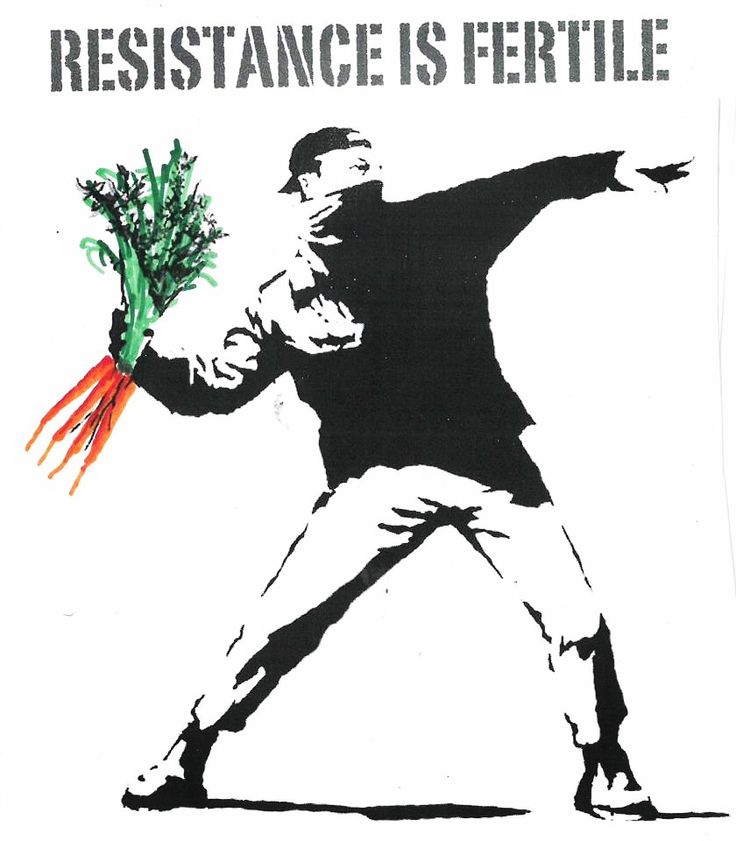
Stop Press
We just heard that rising supermarket prices, and delays in delivery in the Netherlands are partly due to the Ukraine war which has created a shortage of aluminiun foil for the packaging industry.
Personally I prefer the brown paper bag approach to packaging. It rots down nicely in the compost or your green bin and doesnt need recycling or landfill. The last two options are further examples of not only food miles adding to the cost and pollution equation but adding to the externalised costs of the industrial food concept, with the consumer and the farmer paying every step of the way
Stop Press – again
As is typical, the day after I posted this I came across a small video published by Omroep Fryslan about a Dutch farmer who is doing exactly what I was talking about above, I will try and put a transcript of it here but need a while
https://www.omropfryslan.nl/fy/nijs/1156158/dit-is-de-oplossing-foar-de-stikstofkrisis



